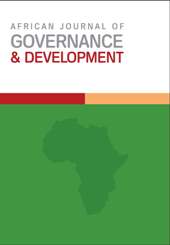Internal Quality Assurance Practices and Andragogy in Higher Education Institutions: Implications for PhD Training in Uganda
Main Article Content
Abstract
Higher Institutions of Learning will significantly contribute to the transformation of society and economic development of any country when their training approaches focus on developing graduates who generate new knowledge and skills meant to address multiple social, economic and environmental issues. Using a critical narrative literature review, thisarticle examines the contribution of internal quality assurance practices to andragogy in higher education institutions (HEIs) in Uganda. It specifically focuses on staff development and student evaluations as key internal quality assurance practices that explain the application of andragogy in the training of Ph.D. students. The article discusses the current state of training of doctoral students in Uganda and recommends the following strategies for HEIs so as to promote the quality of delivery for doctoral students:i) pursue vigorous staff development programmes to equip lecturers with the
necessary andragogical skills to facilitate students’ development of necessary workbased and other competences needed to address Uganda’s social, economic and
political issues,
ii) systematically and routinely monitor and evaluate the teaching and learning process
to inform decision making on quality assurance and teaching practices, and
iii) utilise students’ evaluations of the Ph.D. delivery approaches to establish the
relevance and improvement of the curriculum.
Article Details

This work is licensed under a Creative Commons Attribution-NonCommercial-NoDerivatives 4.0 International License.
